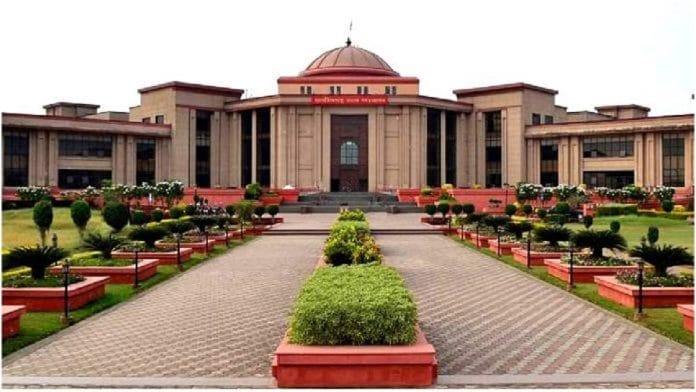New Delhi: In a ruling that has once again ignited the debate on marital rape, the Chhattisgarh High Court Monday cleared a 40-year-old man of charges including rape, forcible anal penetration and culpable homicide, reasoning that sexual acts by a husband with his wife, even without her consent, were not considered an offence in the country.
Saying that it’s “quite vivid” that if the wife is over 15 years of age “then any sexual intercourse or sexual act by the husband with her cannot be termed as rape”, the bench of Justice Narendra Kumar Vyas noted that the wife’s lack of consent for the unnatural act “loses its importance” under such circumstances.
“…it is quite vivid, that if the age of wife is not below 15, then any sexual intercourse or sexual act by the husband with her cannot be termed as rape under the circumstances, as such absence of consent of wife for unnatural act loses its importance, therefore, this court is of the considered opinion that the offence under Section 376 and 377 of the IPC (Indian Penal Code) against the appellant is not made out,” the court said in its 17-page-ruling.
While Section 375 defines and deals with the offence of rape, Exception 2 of this provision exempts sexual intercourse or acts by a man with his own wife, provided that she is over 15 years of age, from the offence’s ambit. Essentially, this exemption protects the man from being charged with raping his wife.
In the present case too, the court relied on this exception, also known as the marital rape exception, to give relief to the man accused of forcibly penetrating his wife and causing her death.
What was the case?
According to the prosecution, the accused man, a driver by the name of Gorakhnth Sharma, in December 2017 committed unnatural sex with his wife “against her will” and then left her and went to work. She later complained of pain and died in hospital.
In her dying declaration, recorded before a magistrate, the victim alleged that Sharma had inserted his hand up her anus, following which she had suffered pain.
The woman was admitted to hospital for treatment, from where a report was made to the police station concerned and the offence under IPC Section 377 (unnatural sex) was registered against Sharma.
The Indian Evidence Act, 1872, under Section 32 deals with the concept of a “dying declaration”. It allows for statements concerning relevant facts made by “a person who is dead, or who cannot be found, or who has become incapable of giving evidence, or whose attendance cannot be procured without an amount of delay or expense” to be considered as admissible evidence, in certain situations. Such situations include those when the statement is made by a person about their own cause of death.
Usually, a dying declaration is only admitted as evidence in cases where the cause of a person’s death comes into question. This concept is based on the Latin legal maxim “nemomoriturus prae-sumitur mentire” which means a man will not meet his maker (god) with a lie in his mouth.
In Naeem vs State of Uttar Pradesh, the Supreme Court bench of Justices B.R. Gavai and Sandeep Mehta, last year ruled that a dying declaration can be the sole basis of conviction, but courts must find it to be trustworthy, and one that inspires confidence.
Notably, in the case decided Monday, the doctor who had conducted a postmortem of the deceased’s body had said there were “two perforations on the rectum”, one on the anterior side and another above the pelvic floor, causing him to conclude that the victim died on 11 December, 2017, as a result of the same.
In February 2019, a trial court at Jagdalpur convicted Sharma for unnatural sex, rape and culpable homicide not amounting to murder, and sentenced him to 10 years’ rigorous imprisonment, and a Rs 1,000 fine.
It also cited the five-judge SC bench’s ruling in Navtej Singh Johar vs Union of India (2018) to say that if an “unnatural offence is done with consent, then offence of Section 377 IPC is not made out”.
HC’s decision
The high court cited the 2024 two-judge SC bench ruling to say that a careful scrutiny of the dying declaration by this court cannot be found “to be sufficient” for recording conviction, as there is “no corroboration from other evidence”, casting doubt on the declaration’s effectiveness.
It further termed the charge of culpable homicide not amounting to murder (Section 304) against Sharma as “nothing but perversity” and “patent illegality”, adding that there was no evidence or perverse findings in the case.
It set aside the trial court’s 2019 order and stated that the “accused is acquitted of the charges levelled against him under Sections 376, 377 and 304 of the IPC”. It also directed that any amount paid by the accused as fine should be reimbursed to him.
(Edited by Nida Fatima Siddiqui)
Also Read: ‘Can’t incentivise bias against dark skin’ — Chhattisgarh HC dismisses man’s plea for divorce






